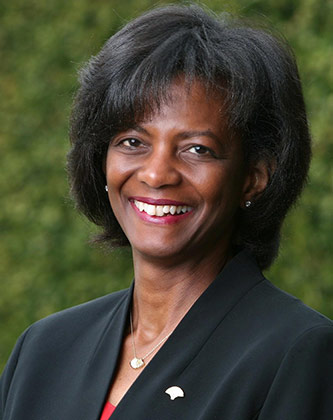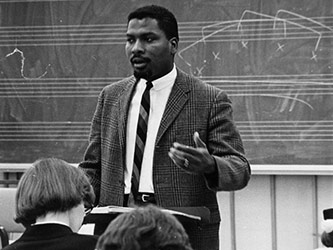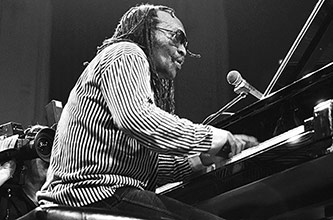American Music Review
Vol. XLVII, Issue 2, Spring 2018
By Jeffrey Taylor, Brooklyn College and The Graduate Center, CUNY
I have often written remembrances in this journal of scholars and musicians from the field of American music. Several years ago, after one particular difficult issue, I remember announcing I felt something like AMR’s obituary editor. Of course it is important to celebrate those who pass, along with those who are still vibrant presences in the field. As I grow older, the remembrances increase, even as does the addition of younger scholars into our field. In looking back over the pas t year, I decided it was important to honor three individuals we have lost. Not all of these people are equally well known, though all have been honored in print and in the media. But these were people who I met at important junctures of my life. I did not know any of them particularly well, but my encounters with them enriched my own work and my life.
I first met Rae Linda Brown, who died far too young on 20 August 2017, while a graduate student at the University of Michigan. I didn’t know it at the time, but she was beginning her first teaching gig after getting her doctorate from Yale. I enrolled in her African American Music class and I remember at the time thinking she was initially somewhat uncomfortable in front of the class—a circumstance all too familiar to me just a few years later as I faced my first group of students at CUNY. It was a marvelous course, though, and I still have the pack of readings. At the time I had set my sights on studying American music, probably jazz, but had just completed the general Western music history and theory classes. Rae Linda’s class marked my first exposure to the writings of Eileen Southern, among others, and opened a world of scholarship on black music, much of it beyond jazz. For example, I knew little of the black art music tradition represented by composers like H. T. Burleigh, William Grant Still, and Florence Price, the latter of course inspiring much of Brown’s research and a magnificent edition of Price’s first and third symphonies, coedited with Wayne Shirley.
Strong memories are lodged in my mind from that term. I had become interested in the work of R. Nathaniel Dett (1882–1943), composer and leader for many years of the choirs at the Hampton Institute in Virginia. I talked my classmate Barbara Dobbs (Mackenzie), now my colleague at the CUNY Graduate Center, into a performance of some of Dett’s arrangements of Negro spirituals. This resulted in a heated discussion of musical ownership—whether white performers spared the devastating legacy of slavery had the right to present these pieces which had, nevertheless, been set by Dett very much as European art songs, with piano accompaniments evoking Brahms and Wolf. Both Barbara and I vividly remember this experience to this day.
Not long after Rae Linda gave me a ride home following a performance of Anthony Davis’s opera X in Detroit. We lingered in the car before she dropped me off, and became immersed in one of those conversations I wish I could revisit; we dug deep into the issues raised by that class experience, and I was led to question many of my prior assumptions about black artists, composers, and performers. She also spoke with great passion about her own work as well as the music we were studying in class, giving insights into a generation of black composers who modeled their work on that of European composers, while honoring their own heritage. This was a rich vein in American music history that at the time lay largely untouched. My final project became a study of Dett’ s oratorio The Ordering of Moses, a moving work still not widely known or performed (though revived in 2014 by the Cincinnati May Festival). I remember Brown suggesting this piece, and looking over that paper from so many years ago I note the sense of discovery, not just of a composition but of a creative process that was deeply sincere and truly unique. I saw Brown many times after this, especially after she became president of the Society for American Music, but it was this conversation, which opened my eyes and ears to a new world of African American musical scholarship, that immediately came to mind when I heard of her passing.
Olly Wilson (1937–2018) was internationally known as a composer, writer, and teacher. But we developed a friendship because of his connection with the great jazz pianist Earl “Fatha” Hines, who had been a Bloch lecturer at UC Berkeley in 1980. Wilson discovered that Hines was born on the exact day as his own father, and often joked that the nickname “Fatha” took on a special meaning for him. He ultimately became a co-executor of Hines’s estate, which led me to contact him while I was doing dissertation research on the pianist. At the time, all of Hines’s possessions had been placed in storage because of a thorny tax dispute, but Wilson invited me out to the Bay Area to look at the materials. We drove down to a huge storage facility south of Oakland, and I remember vividly as several large wooden storage containers were brought down by forklift. I spent several days with these materials, most of which have ended up at the Earl Hines Archive at UC Berkeley. But what made the experience especially poignant was that virtually the entire contents of Hines’s Oakland home had been moved into storage. Band arrangements w ere stuffed in bags along with phone bills and takeout menus. One case held Hines’ s extensive toupee collection. And in a rather chilling moment, I found an obituary for Hines’s daughter inserted in a folder with her high school graduation photo (sadly, both of Hines’s daughters, and his wife, preceded him in death). Though he could easily have informed me these materials were simply unavailable, Wilson instead allowed me a very personal view into the life of this remarkable musician, and the experience has stayed with me ever since. I ran into Wilson several times after this visit, and we always talked about “Fatha” Hines, a palpable presence for both of us.
Many years ago I walked into the office of my department chair at Brooklyn College to find Cecil Taylor (1929–2018) seated discussing the possibility of using the College’s pianos for practice. I had a brief discussion with him then, during which I made the mistake of calling him a “jazz musician”; he pointedly corrected me, insisting he was “a composer.” Years later he received an Honorary Doctorate at the College’s commencement ceremony, delivering one of the shortest and most memorable acceptance “speeches” I have ever heard. Seated next to him at the reception following the event, I learned quickly that he was not interested in answering questions, but if allowed just to talk shared fascinated glimpses into his life and his highly original mind. But my most vivid memory of Taylor came at the Harlem Stage Gatehouse, in 2012, where he presented a solo concert. I was familiar with Taylor’s work on recordings and films, but I had never experienced his playing live. Seated just a few feet away from him, I watched as he walked to the piano with a single sheet of notebook paper, and proceeded to play for over an hour, interspersing his improvisations with poems. I don’t recall ever being so transfixed by a solo performance, and I left the venue unable to describe what I had seen in musical terms, but somehow transformed. I am still not certain what took place that evening, but it forever changed the way I thought about creative improvisation, and convinced me of the necessity of witnessing this music live to truly do it justice. Recordings remain pale sketches of Taylor’s artistry. Now his voice has been stilled I regret not seizing other opportunities to hear him live.
There are many who knew these three gifted people far better than I, and in different circumstances. However, these seemingly minor experiences took on special significance for me as I first read of their passing. I know I am a better teacher , scholar, and listener because of my acquaintance with these fellow travelers, and for that I will continue to be grateful.









